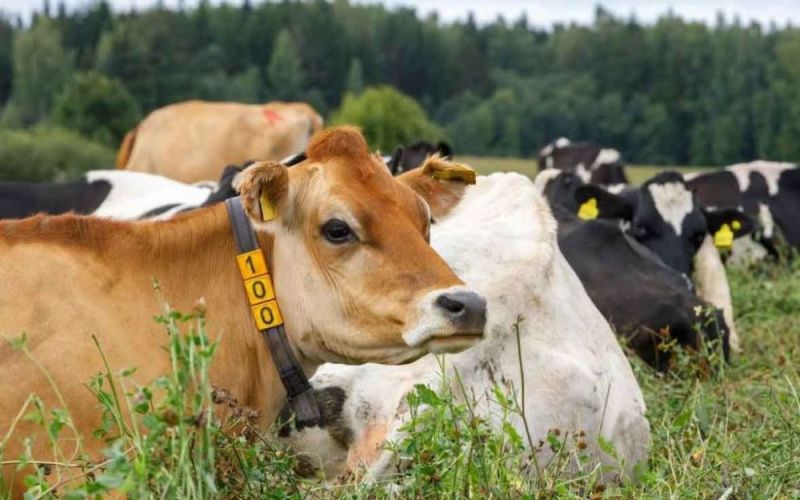Cultural values won’t allow India to accept US demand of allowing dairy products from cows fed animal remains: GTRI
Source: dairynews.today
The United States Trade Representative (USTR) has raised concerns over India's trade practices, particularly high import duties and strict import restrictions on certain dairy products.

The United States Trade Representative (USTR) released its National Trade Estimate (NTE) Report on April 1, 2025, highlighting significant challenges in trade and regulatory arenas concerning India's practices.
Key concerns highlighted include India's high import duties, notably a 150% tariff on alcoholic beverages and a 100% tariff on walnuts and raisins, alongside strict restrictions on dairy products originating from animals fed with animal remains. Representing India's stance, the Global Trade Research Initiative (GTRI) defended these practices, asserting that they align with domestic necessities and cultural values.
GTRI stated, "India may never allow dairy products from cows fed animal remains," emphasizing food safety and cultural considerations. They further highlighted India’s requirement for non-GM and GM-free certifications for specific crops, which the U.S. views as unjustified but India argues enhances traceability and consumer confidence. The report also pointed out India's non-tariff barriers, such as animal-based oil import restrictions and selective licensing in the medical device sector.
For instance, India ceased issuing licenses for refurbished U.S. medical devices in 2024, a move seen by the U.S. as overregulation but deemed necessary by India to prevent an influx of low-quality second-hand goods. These restrictions continue to be a focal point in U.S.-India trade discussions, with the U.S. pushing for fewer barriers and India prioritizing cultural and domestic interests.
Key concerns highlighted include India's high import duties, notably a 150% tariff on alcoholic beverages and a 100% tariff on walnuts and raisins, alongside strict restrictions on dairy products originating from animals fed with animal remains. Representing India's stance, the Global Trade Research Initiative (GTRI) defended these practices, asserting that they align with domestic necessities and cultural values.
GTRI stated, "India may never allow dairy products from cows fed animal remains," emphasizing food safety and cultural considerations. They further highlighted India’s requirement for non-GM and GM-free certifications for specific crops, which the U.S. views as unjustified but India argues enhances traceability and consumer confidence. The report also pointed out India's non-tariff barriers, such as animal-based oil import restrictions and selective licensing in the medical device sector.
For instance, India ceased issuing licenses for refurbished U.S. medical devices in 2024, a move seen by the U.S. as overregulation but deemed necessary by India to prevent an influx of low-quality second-hand goods. These restrictions continue to be a focal point in U.S.-India trade discussions, with the U.S. pushing for fewer barriers and India prioritizing cultural and domestic interests.









